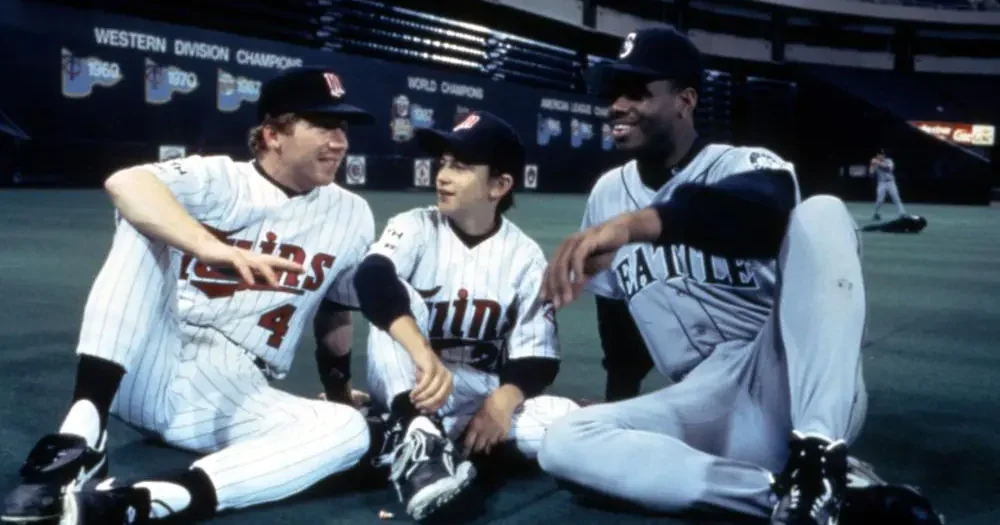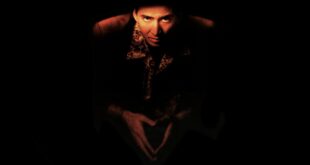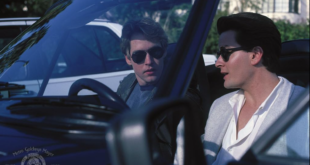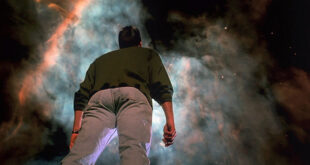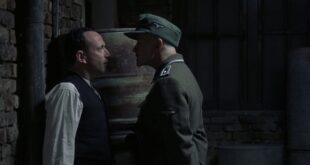“Baseball is made for kids. Grownups only screw it up.”
– Hall of Fame pitcher Bob Lemon
This quote is the thesis of Andrew Scheinman’s Little Big League, a fantastic and intelligent baseball movie buried beneath the surge of kids sports movies in the 1990s. In particular, baseball movies were extremely popular in the early 90s. You had Major League (1989), Mr. Baseball (1992), The Babe (1992), Rookie of the Year (1993), The Sandlot (1993), Angels in the Outfield (1994), Major League II (1994), The Scout (1994), and Cobb (1994). There were a lot of sports movies for Little Big League to contend with. It only grossed $12 million against a $20 million budget. Not helping things also was it was released in the Summer of 1994, just a week after The Lion King, Little Big League was dead on arrival when it hit theaters. Despite Two Thumbs Up from Siskel and Ebert, reviews were not so hot. Currently, the film has an insanely low 33% on Rotten Tomatoes.
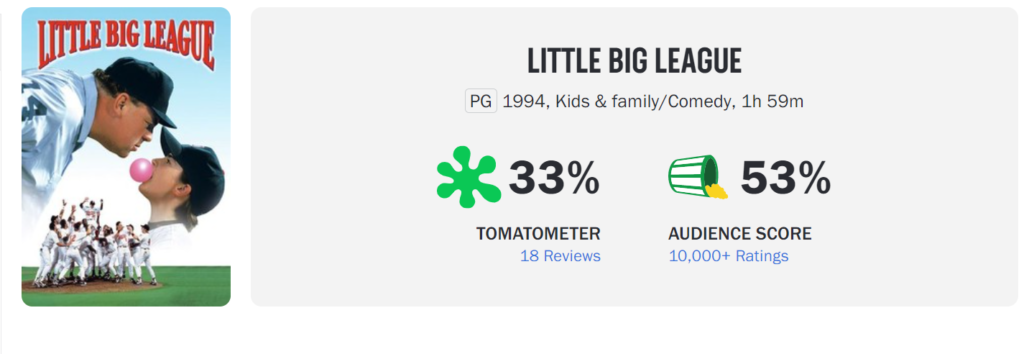
What a shame because Little Big League is an absolute delight from start to finish. It works not just for kids, but baseball fans in general, which I consider myself a huge one (Go Phillies!). It all works miraculously despite a plot that’s pure fantasy. What Scheinman does working with Gregory K. Pincus’s clever script is to handle this fantasy plot of a kid taking over as owner and manager of the Twins and make it as grounded in reality as possible. It’s not a dumb film about baseball, and the lead character Billy Haywood, played wonderfully by Luke Edwards, is as intelligent as they come about baseball. This is set up early in the movie during Billy’s Little League game. Now, Billy is not the best ballplayer around, and the film goes out of its way to show us. A controversial call results in the umpire not knowing how to score the play, so the ump consults 12-year-old Billy, who gives us the right call and a historical example of a similar situation.
Billy Haywood’s grandfather owns the Minnesota Twins. Billy’s just your average kid who gets in trouble at school for running in the halls and tries his best to get decent grades but is mainly obsessed with baseball and baseball history. He’s played by legendary veteran actor Jason Robards who brings a calming, soothing presence to everything he’s in. I feel a close kinship with Billy because he reminded me of myself when I was a kid, though I was probably a little better at baseball than him but knew less than he does about the sport. Billy’s grandfather dies one day; lo and behold, he leaves control of the Twins to Billy. Billy’s first business as the owner is firing the miserable manager O’Farrell, played hilariously by Dennis Farina (“Hamilton!”), and hiring himself as the manager. There’s no question Billy is bright enough, but how will a professional baseball team act to a kid being their manager?
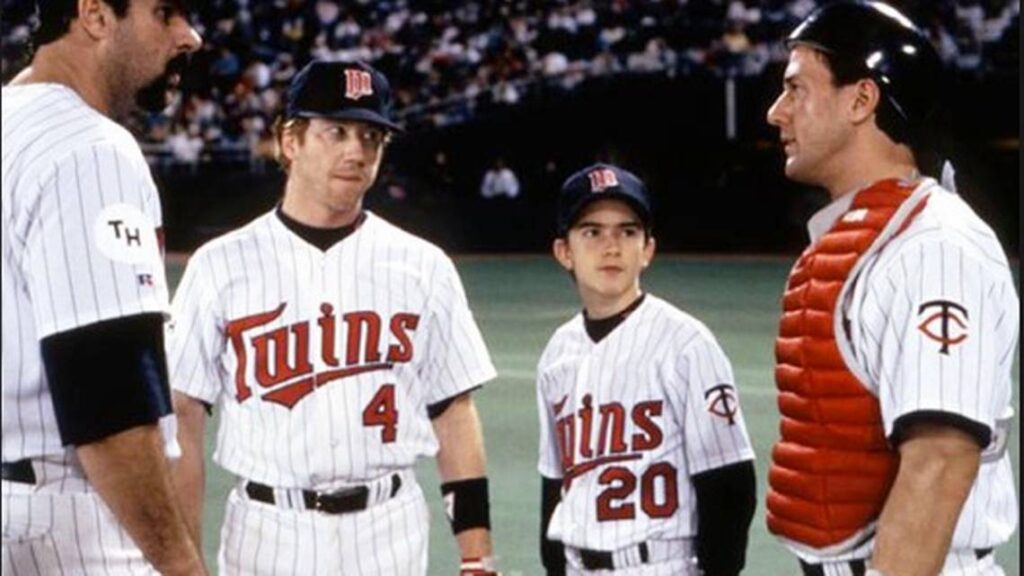
In lesser hands, Little Big League could have been cartoonish and unbelievable, but the film has the same reverence for the game as Bull Durham and Field of Dreams; it’s just as bright. Many baseball movies released then, like Major League II and The Scout, were not savvy about baseball. You just felt the comedy in those movies was recycled sitcom gags. Rookie of the Year as well, fun, but never do you get the feeling you’re watching a realistic film about baseball or you’re with characters that know baseball. This is a common problem in Hollywood sports movies, but not for Little Big League. The Twins do not respond well to Billy being named manager, and he spends a decent amount of the running time getting his players to believe in what he’s doing.
By the end of the season, though, the players have his grudging respect. He’s helped out big time by pitching coach Mac (the consistently excellent John Ashton) and star first baseman Lou Collins (Timothy Busfield), who happens to be dating Billy’s mother (Ashley Crow in a sweet performance). Eventually, Billy gets the Twins to play better by reconnecting the colorful cast of characters on his team to make baseball fun again. You see, the adults on the team are more concerned about money and contract deals than truly relishing the opportunity they have to play Major League Baseball. This is represented by Scott Paterson’s Mike McGreevy, a relief pitcher on the team who is one of the last to come around to Billy. He thinks Billy is a “circus freak” and is intentionally holding back to make Billy look bad. McGreevy wants to be traded, but Billy turns the tables on him. “Hey, Mac, what’s the going rate for an absent-minded free-agent pitcher who can’t get anybody out?” McGreevy starts pitching better. Billy starts winning the respect of the team.
Little Big League is not just a film about what it would be like for a kid to manage a Major League Baseball team. There’s subtext as well. Billy starts the movie as an ordinary kid with friends. They enjoy ice cream and fishing. They’re just normal kids. However, Billy starts to get a big head during the season, and Major League Baseball’s adult aspect starts to overtake Billy’s life. He begins to neglect his friends and even disappoints his mother because he rented the “Night Nurses From Jersey” in his hotel room. The way the film deals with Billy getting a big head is subtle, not to mention the drama of the film is also played out effectively. Lou and Billy butt heads at times, and Lou is benched. There’s also a nice subplot about Billy idolizing a once great veteran player named Gerry (played by Duane Dunne, who was also Alvin Mack in The Program) and how Billy has to make the business decision to cut him, which is devastating.
Although this is undoubtedly an unbelievable story, nothing feels unrelatable in Little Big League other than having a grandfather who owns a baseball team. It’s a very mature film, unlike Rookie of the Year and Angels in the Outfield, which deal with more broad slapstick humor. The humor in Little Big League is mature and baseball savvy. There are some similarities with Rookie of the Year, especially being a kid in the major leagues and how that ruins being just a normal kid, but Little Big League is more intelligent and has more to say about the game and growing up.
Finally, another great thing about Little Big League is the baseball action. All the baseball scenes are convincingly filmed and, for the most part, realistic. A lot of real baseball players were cast, and this helped the authenticity big time. The final game is against the real Seattle Mariners led by Ken Griffey Jr and Randy Johnson. Little Big League plays with the audience’s expectations regarding the big game as well. Not just the result of the game, but it also manages to throw some math in there as well in a charming sequence.
Is Little Big League a perfect film? No. Will it enthrall everyone? No. But it’s a film I’ve been very high on ever since I was a kid because there’s genuineness in it, and it takes the time to consider what if this premise was played out in a somewhat realistic way. What good sports movies have in common is their focus on memorable characters, and Little Big League has that in spades. I couldn’t think of a film I wanted to pay tribute to more on MLB Opening Day 2023 than Little Big League.
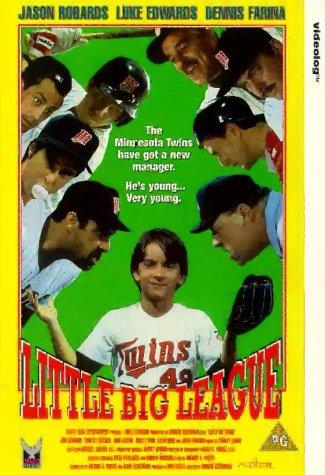
 Movie Finatics The Place for Movie Lovers
Movie Finatics The Place for Movie Lovers
